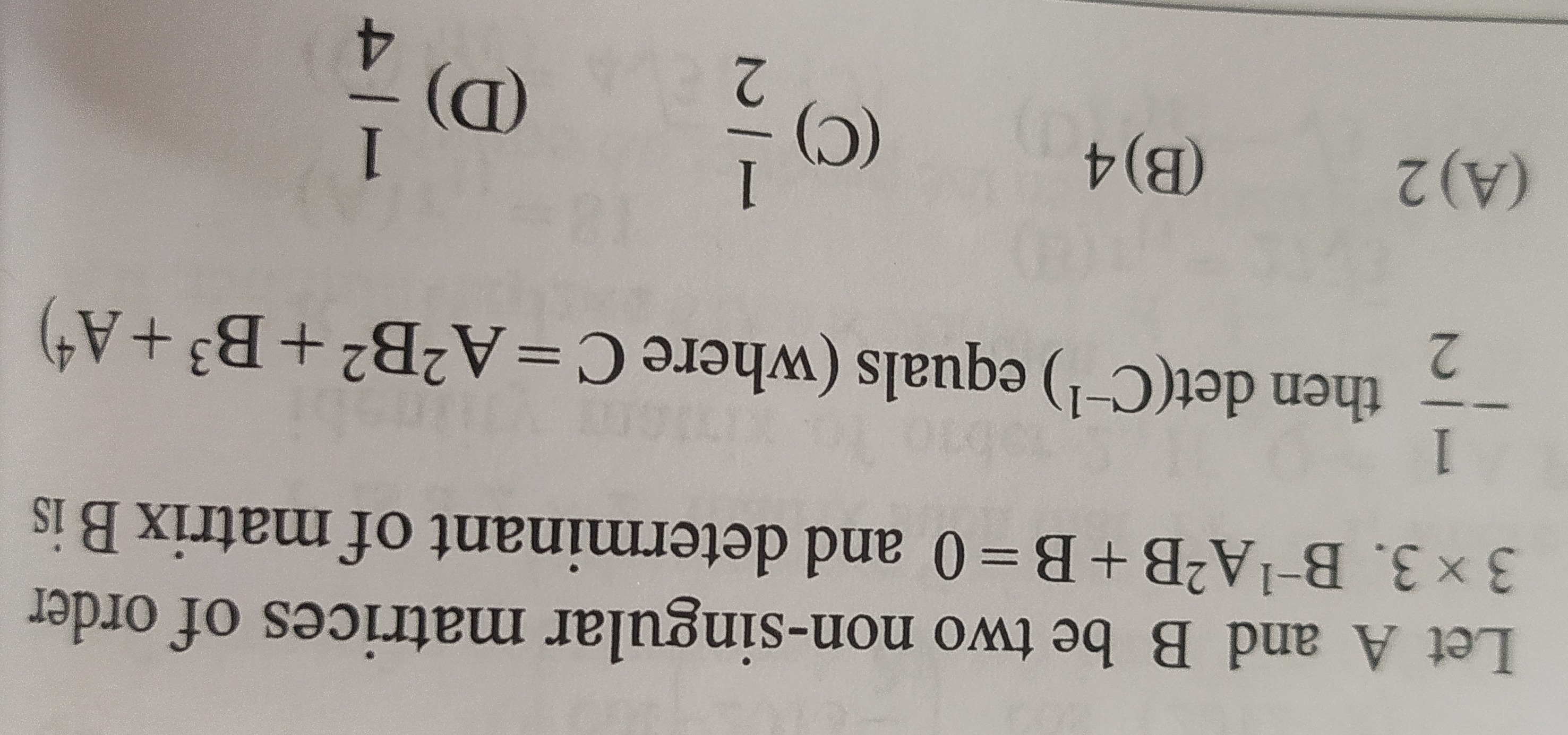Question
Question: Let A and B be two non-singular matrices of order 3 x 3. $B^{-1}A^{2}B + B = 0$ and determinant of m...
Let A and B be two non-singular matrices of order 3 x 3. B−1A2B+B=0 and determinant of matrix B is 21 then det(C−1) equals (where C=A2B2+B3+A4)

2
4
21
41
4
Solution
The given equation is B−1A2B+B=0. Since B is a non-singular matrix, B−1 exists. Multiply the equation by B on the left:
B(B−1A2B+B)=B⋅0 (BB−1)A2B+B2=0 IA2B+B2=0 (where I is the identity matrix) A2B=−B2
Since B is non-singular, B2 is also non-singular. We can multiply the equation A2B=−B2 by B−1 on the right:
A2BB−1=−B2B−1 A2I=−B(BB−1) A2=−BI A2=−B
Now consider the expression for C: C=A2B2+B3+A4 Substitute A2=−B into this expression. C=(−B)B2+B3+(A2)2 C=−B3+B3+(−B)2 C=0+B2 C=B2
We need to find det(C−1). Since C=B2, we have C−1=(B2)−1. Using the property (Mn)−1=(M−1)n, we get (B2)−1=(B−1)2. So, C−1=(B−1)2.
Now, calculate the determinant of C−1: det(C−1) = det((B−1)2) Using the property det(Mn) = (det(M))^n, we get: det((B−1)2) = (det(B−1))^2
We know that for a non-singular matrix B, det(B−1) = 1/det(B). We are given that det(B) = 1/2. So, det(B−1) = 1 / (1/2) = 2.
Substitute this value back into the expression for det(C−1): det(C−1) = (det(B−1))^2 = 22=4.
Therefore, the final answer is 4.
